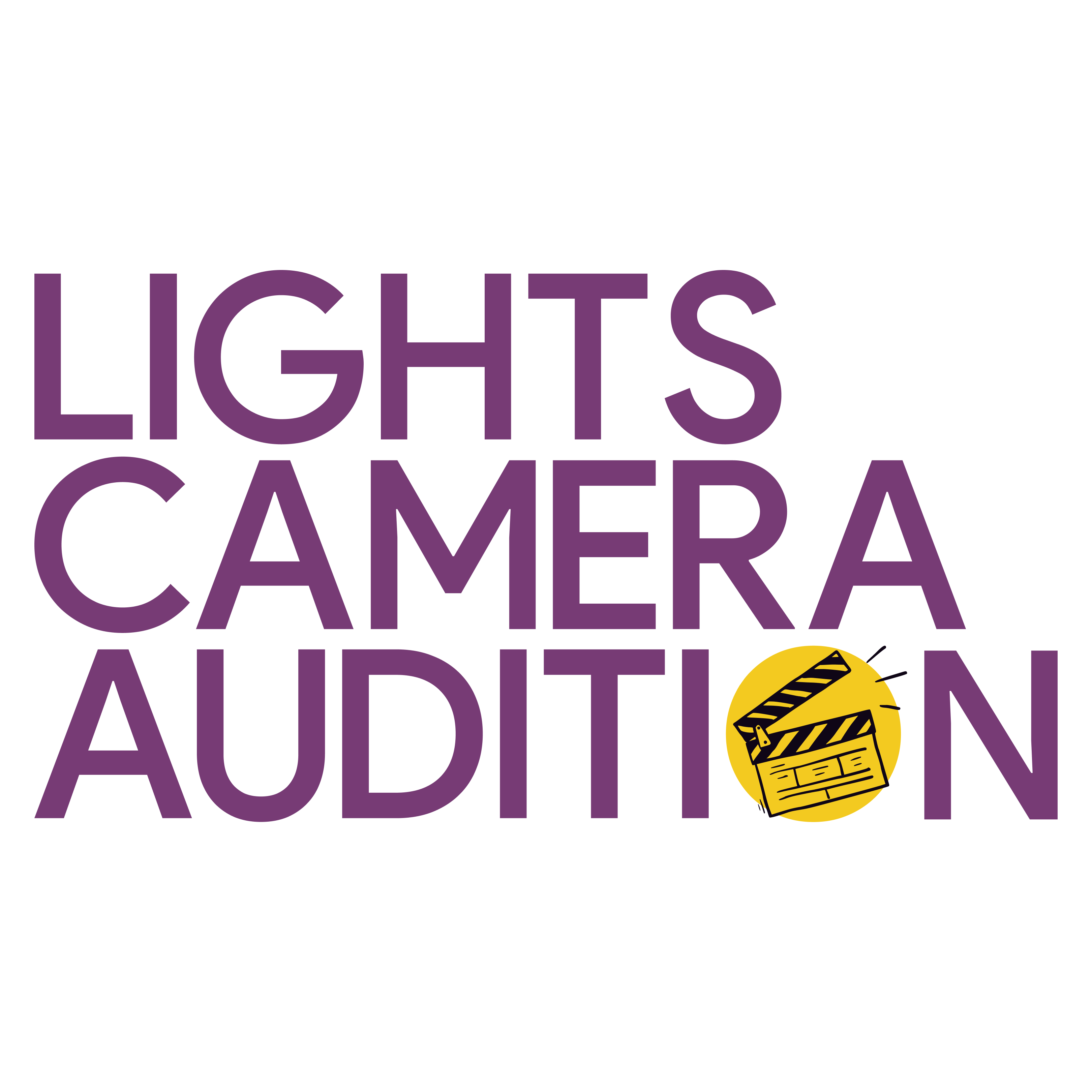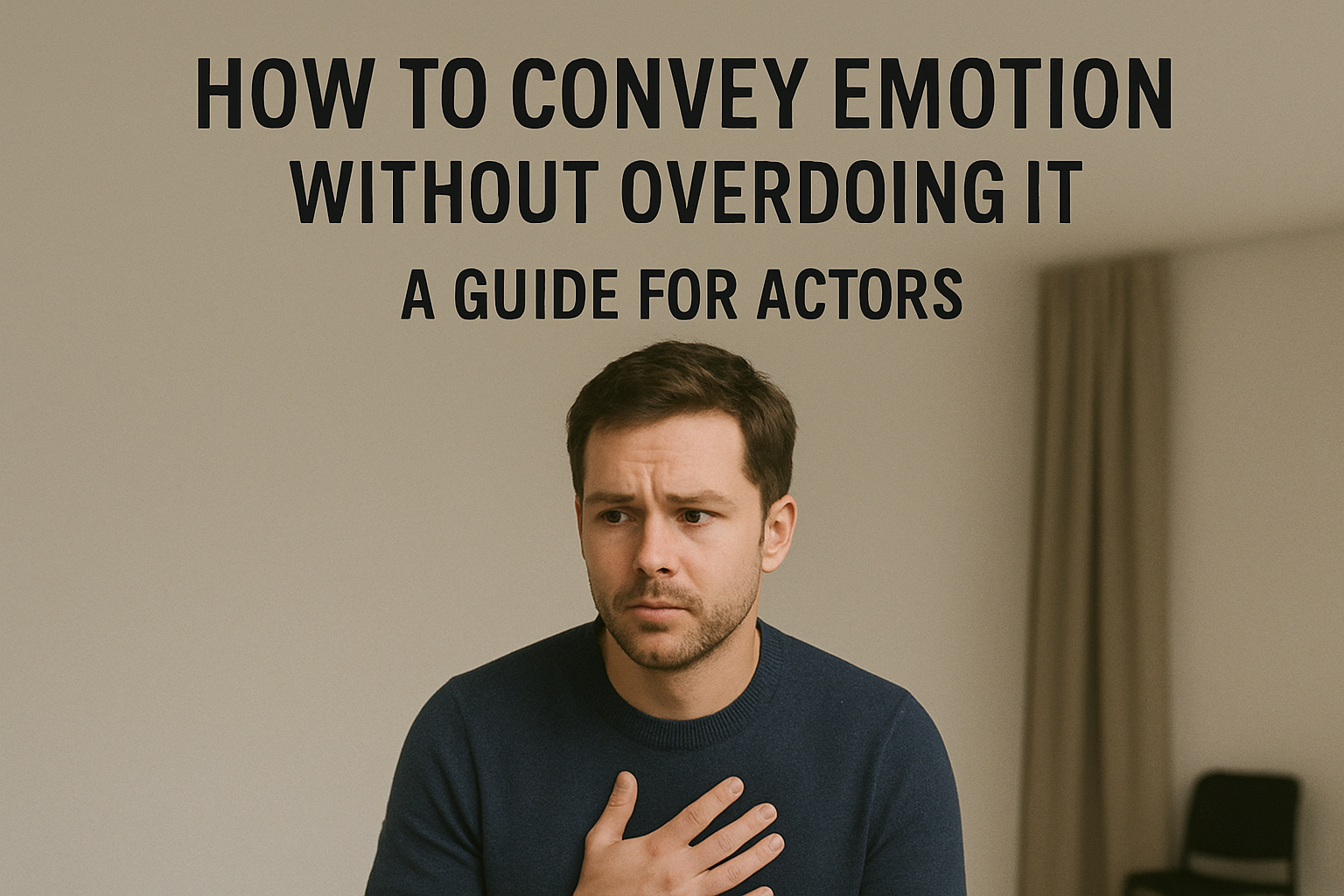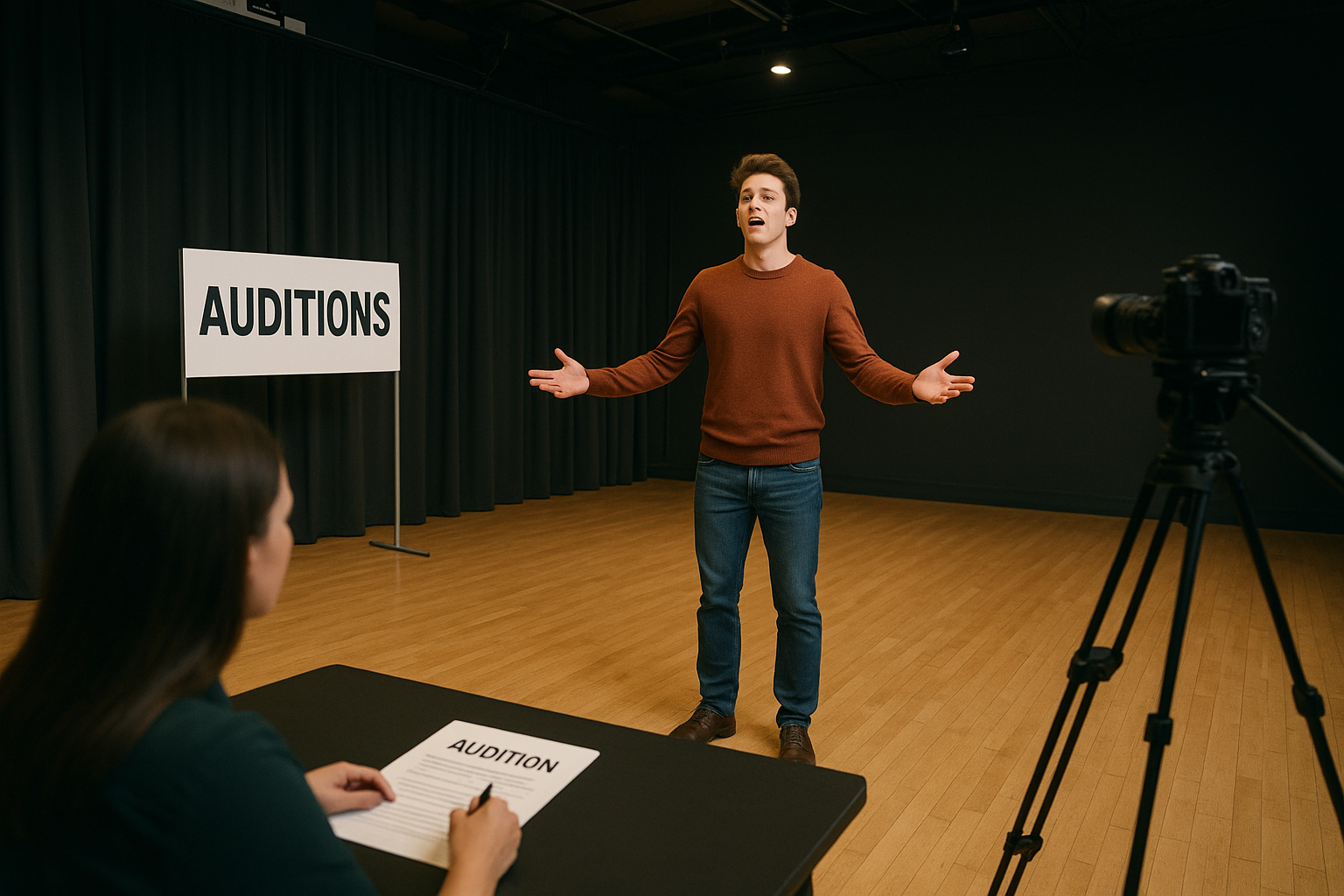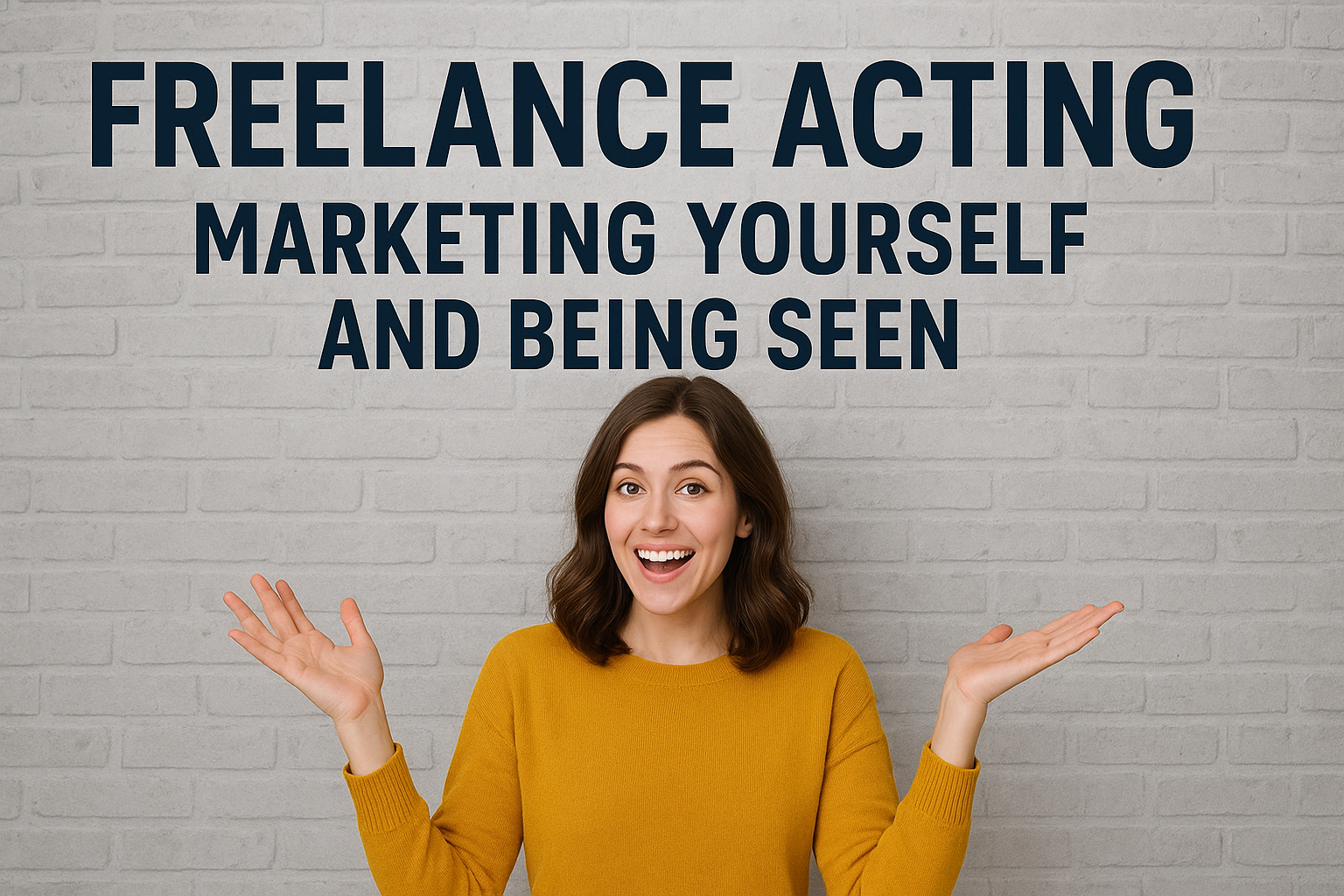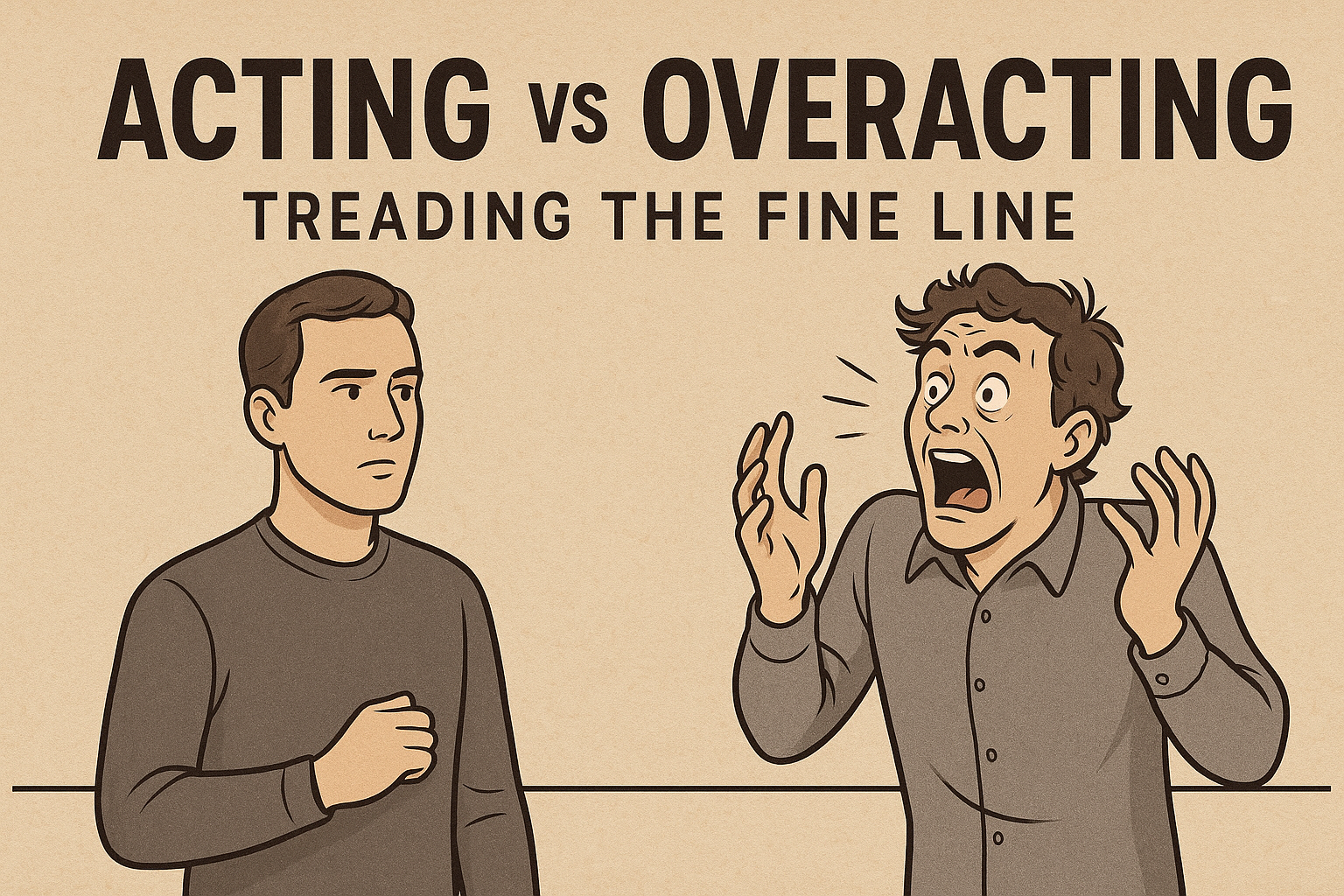
Acting is one of the oldest and most compelling mediums of storytelling. From the ancient Greek theaters to contemporary Hollywood movies, an actor's capability to be able to make us laugh, cry, or reason has always been the focus of every performance. Yet there is one word that frightens every actor—overacting.
So, what exactly is the difference between acting and overacting? Where’s the line, and why do some performances soar while others fall flat? Let’s dive into it.
What is Acting?
Acting is the art of giving life to a character. It's more than memorizing lines and delivering them on stage or before a camera lens. Real acting is knowing the feelings, the motivations, and history of a character. A fine actor gets the audience to believe that they're seeing a real person and not an actor pretending to be somebody.
There are numerous techniques used by actors, including:
Method Acting – Sinking totally into the life and feelings of the character.
Classical Acting – Employing voice, body, and face in a more theatrical and controlled manner.
Meisner Technique – Emphasizing authentic reactions and emotional truth.
No matter what the method, the objective is the same: reality. When an actor is in the moment truly, magic happens. Their acting becomes natural, accessible, and sometimes memorable.
What is Overacting?
Overacting, however, occurs when the performance appears exaggerated or artificial. It's when the feelings are too booming, the gestures are too large, or the reactions aren't natural. Rather than engaging the audience in the story, overacting repels them.
Overacting is generally characterized as:
Too dramatic for the situation
Not subtle enough
Forced or unreal
Emotionally unbalanced
Imagine it as seasoning in cooking. A dash of salt makes the dish more flavorful, but excess spoils the dish. Likewise, emotions in acting must be measured and appropriate to the context.
Why Actors Overact
There may be numerous reasons why overacting occurs:
Inexperience: New actors may assume loud or hyper-expressiveness equates with being emotional. Without proper training, they may overact to demonstrate that they're "feeling" something.
Poor Direction: Occasionally, the director is to blame. If the director is seeking a larger-than-life approach (such as in certain comedies or soap operas), then actors will be instructed to exaggerate.
Cultural Differences: What constitutes overacting in one society may be the norm in another. Indian movies, for instance, tend to favor more dramatic outbursts than do Western films.
Theatrical Habits: Theatre acting tends to call for larger movements and projecting the voice to reach the audience in the rear of the auditorium. Some actors find it difficult to tone this down for film or television, where the camera records every small emotion.
Examples: Acting vs Overacting
As a better understanding of how they differ, consider two actors acting out the same emotional scene—for example, a character who has lost a loved one.
The Actor hesitates, voice cracks, eyes well up with tears, and in a whisper says, "They're gone." You can feel their sorrow because it is subtle and authentic.
The Overactor at once starts blubbering loudly, slams items on the floor, cries out on the floor. This appears to be a show, not genuine sorrow.
Subtlety tends to make a greater impact. Great actors understand that at times, less is more.
When is Overacting Acceptable?
Surprisingly, overacting is not always terrible. In some genres or styles, it's practically de rigueur.
Comedy: Exaggeration tends to make punchlines work. Jim Carrey, for example, is famous for his over-the-top approach, yet in comedies, it plays marvellously.
Melodrama: In soap operas or some theatrical performances, overacting is part of the appeal.
Parody and Satire: Where the aim is to satirize or parody, overacting is employed intentionally.
So, context is everything. What may be "too much" for a dark drama could be just right in a farce.
How to Avoid Overacting
For actors, the secret to avoiding overacting is based on a few principles:
Know Your Character: Get into their inner life. What are they experiencing? Why?
Stay Grounded: Work from actual feeling, not movement. If you feel it, the audience will feel it too.
Listen and Respond: Acting isn't merely a matter of delivering lines—it's responding. Stay present in the scene.
Practice Subtlety: Experiment with conveying feelings using only your eyes or a subtle shift in tone. Film particularly favors restraint.
Watch Yourself: Watching footage or performances can assist actors in identifying when they overdo it.
Overacting and acting are two facets of the same coin. Both stem from the urge to express, but one engages the audience and the other repels them. Great acting is honest, subtle, and profoundly human. Overacting, although sometimes amusing, usually lacks roots in reality.
For audiences, seeing this distinction can enhance your appreciation for a masterful performance. For actors, it's a reminder that real power is not about doing more, but about doing just enough—and doing it truthfully.
Ultimately, acting is about truth. And truth doesn't have to yell in order to be heard.
Among the tough battles actors face is how to find the most appropriate balance between emotion display and overacting, either on stage, on camera, or when going for auditions. Many performers fear that without adequate emotions, the moment will fall flat. On the other hand, if emotions are overt, the performance may become exaggerated or not true to life.
The entertainment sector is witnessing a huge shift, and the epicenter of this revolution is digital media. Those days are long gone when acting careers were reserved for silver-screen movies or television. Now, web series and digital media such as Netflix, Amazon Prime, Hotstar, YouTube, and MX Player have opened up the floodgates of opportunities for thespians. But what does it actually mean to be an actor in the digital age? Is it all that different from acting in the past? And why do web series prove so engaging as a platform for new and established performers?
Acting may be an art, but in the world of professional performance, it begins long before the cameras roll or the stage lights shine. It begins with the audition — the often nerve-wracking, unpredictable process that determines whether an actor even gets the chance to perform. For aspiring actors, understanding the relationship between auditioning and acting is not just important — it's essential. One feeds into the other, and together, they shape an actor’s growth, resilience, and ultimate success.
Getting into acting is hard — but succeeding as a freelance actor might be harder. Without the support of a large agency, production company, or manager, you're basically a sole proprietorship. You're the product, the marketer, the promoter, and the brand. So how do you become visible? How do you promote yourself as a freelance actor among so many talented individuals? Whether you're new to the game or wanting to level up, this guide will take you through essential strategies to create visibility, bring in opportunities, and establish yourself as a player in the cutthroat industry of freelance acting.
Lights Camera Audition!
Don't miss out on the latest updates, audition calls, and exclusive tips to elevate your talent. Subscribe to our newsletter and stay inspired on your journey to success!
